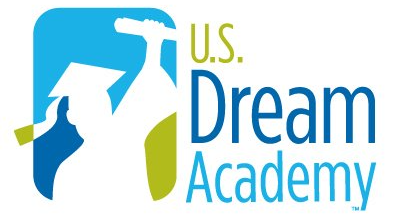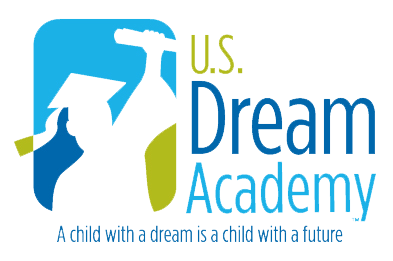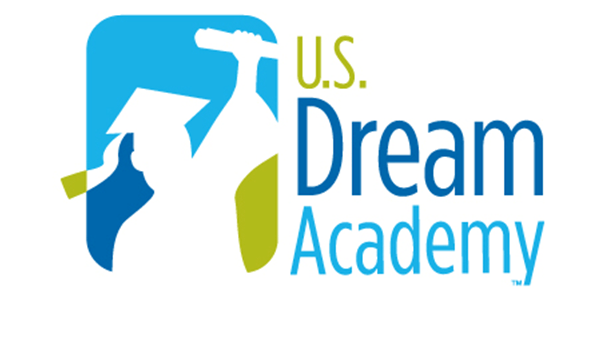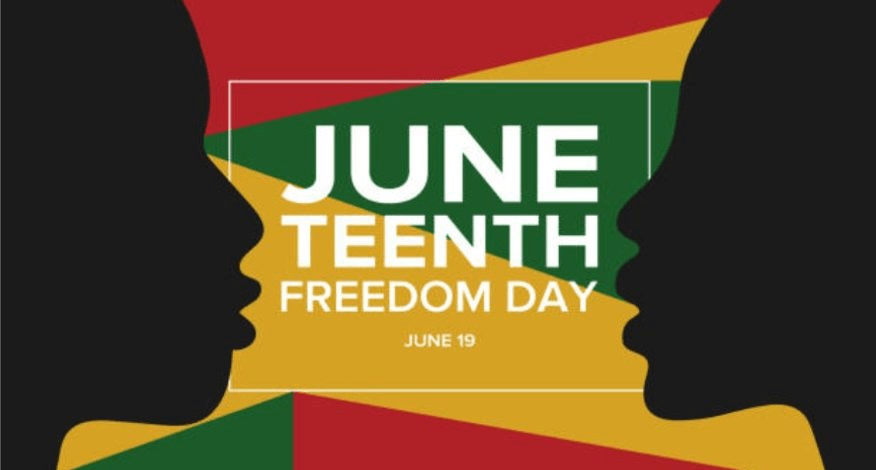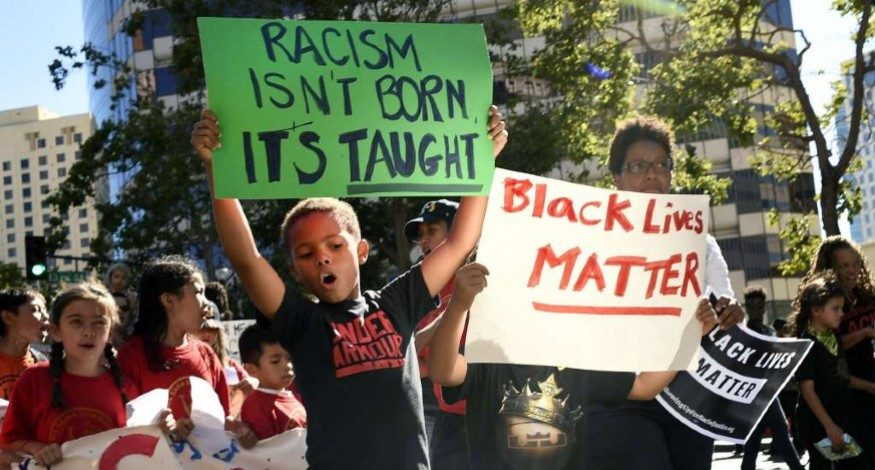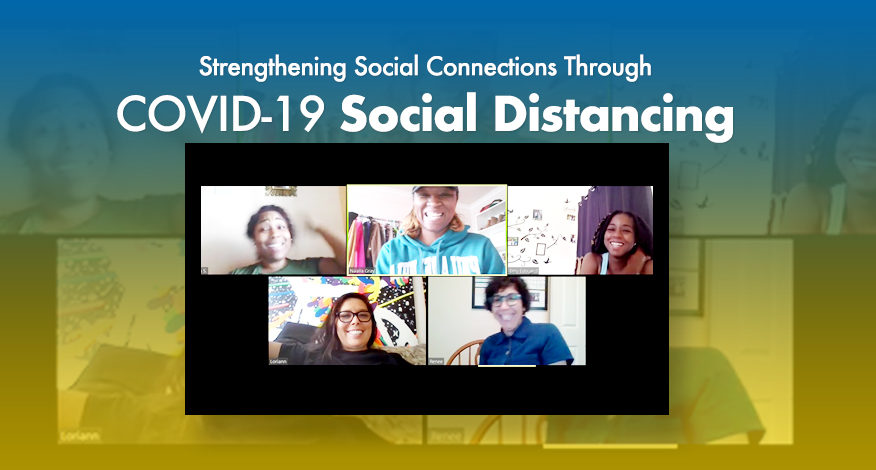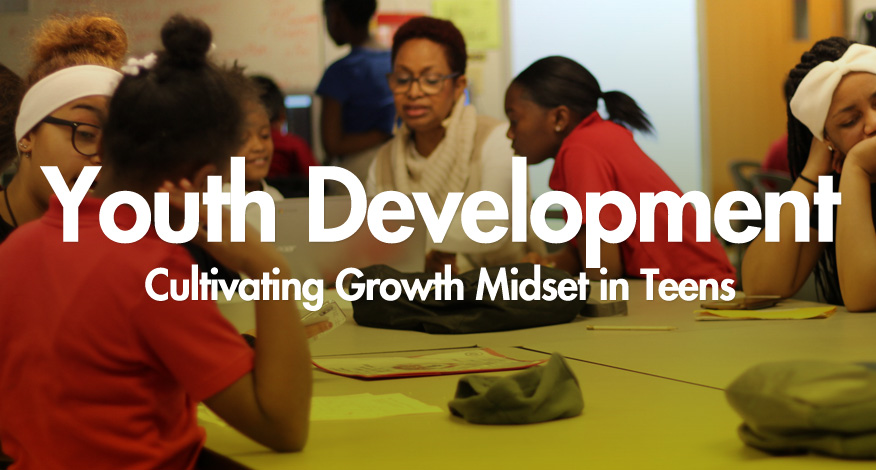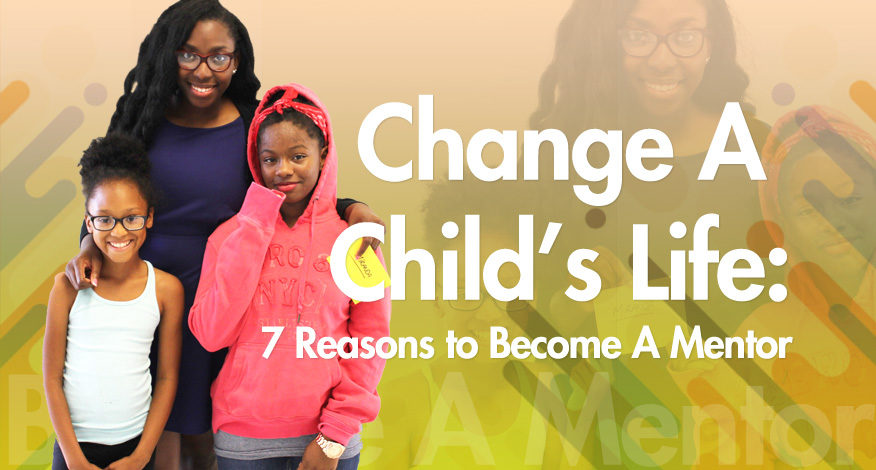C. Diane Wallace Booker, Esq., is the Chief Strategy Officer , Executive Vice President and Founding Executive Director for the U.S. Dream Academy, a justice reform champion, attorney and seasoned non-profit executive. She led the national expansion and has refined a youth development model of skill building, character building and dream building that has successfully helped thousands of young people living in high risk neighborhoods to build positive dreams.
A Child With A Dream Is A Child With A FutureTM
RETHINKING RESILIENCE
Every once in a while a project comes along that causes me to rethink what I think I know.

Recently that project came in the form of a visual podcast Larron Tate and I produced in collaboration with six young people who experienced a range of childhood challenges from having a parent incarcerated to living in a homeless shelter to spending time at Rikers Island as a teenager.
With funding from the Gates Foundation, Derrell Frazier, our young adult project manager identified five other young people from NYC, Baltimore and D.C., to join this nascent project. Over the course of about eight months during the pandemic, we worked together to co-design a narrative shifting visual podcast to reach other young people facing the hard stuff in life. Our initial big goal of the podcast was to de-stigmatize the experience of having a parent incarcerated so that young people will seek help and understand they are not alone. We then expanded our reach to include the experience of being without stable housing and also youth incarceration.
Through these visual podcasts each young person is a storyteller and then a host. They sit on both sides of the story as an interviewer with lived-experience asking insightful questions; and as an interviewee in a vulnerable place of sharing - even as they are still working through issues of forgiveness, reconciliation with family, community expectations, and self-worth.
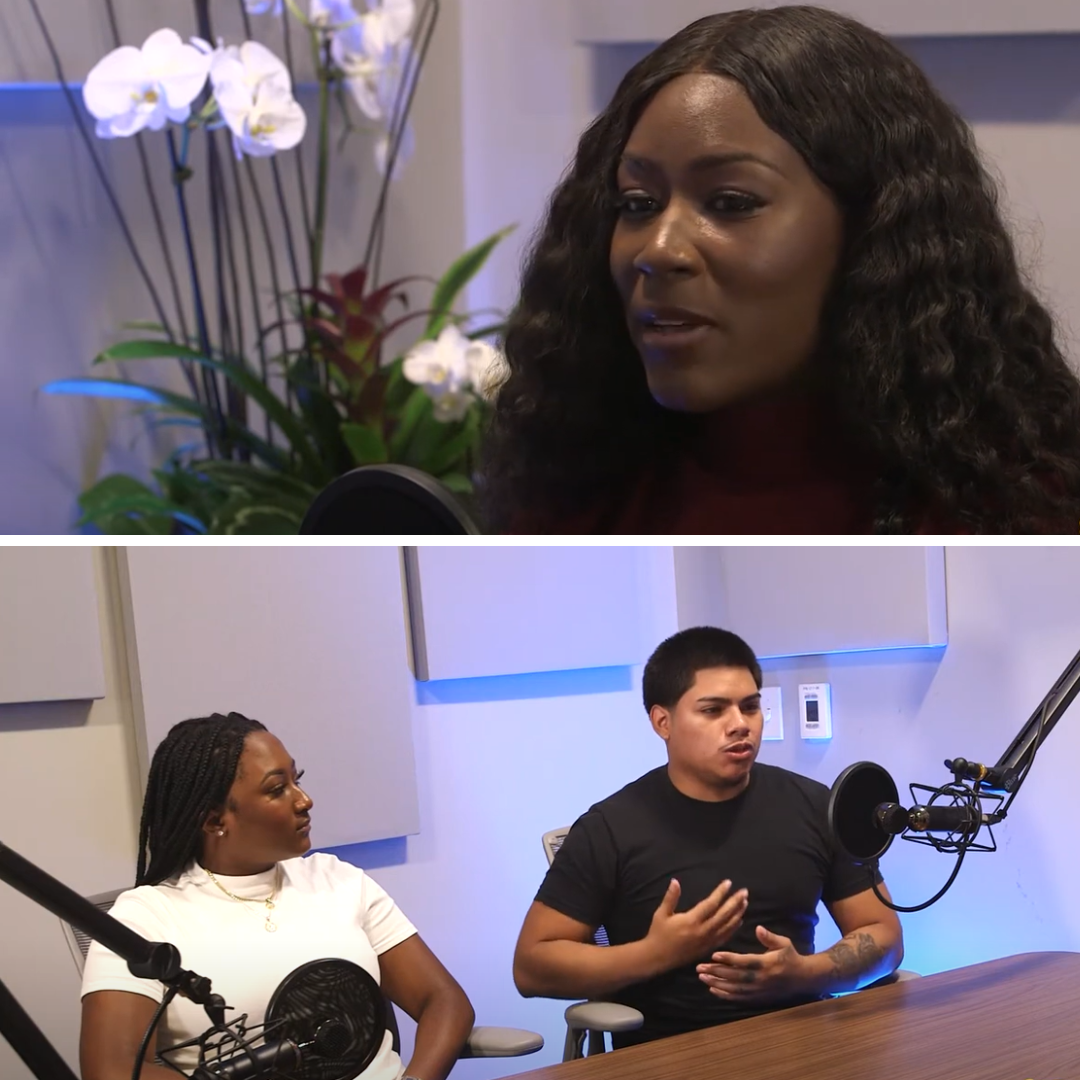
If Only You Knew Co-Hosts Elias Hernandez and Zenaya Roaché with Episode 4 guest Amari McDuffie
Watching these young people formulate their stories while forging a path was painful for me as I longed for these young people to have had a childhood that was filled with safety, security and no adult worries.
I thought, in particular, about the disproportionate number of Black children whose childhoods have been forfeited to meet the challenges present in their under-invested communities such as poverty, lack of safety, discrimination and lack of access to adequate resources. Communities that were never designed nor cultivated to actually support positive youth development or even families. Under-invested communities often experience persistent crime, few viable employment options and poorly designed education systems that operate in tandem to produce frustrated teens, growing up in unsafe neighborhoods, who sometimes lose the desire to dream their own big dream.
Don’t get me wrong--this is not sympathy or feeling sorry for this group of amazing young people. They faced their challenges head on and I wouldn’t dare express the sentiment of pity toward these or any other young people whose childhoods have been interrupted by violence, financial instability or the sudden absence of a parent.
They are resilient, tough and tender all at once...but this narrative of resilience that I have repeated hundreds of times over the years as an executive director, tends to overlook the reason the resilience and toughness is required in the first place. And further, places the responsibility of navigating inequities in under-invested communities at the doorstep of their childhoods. Then the ones who manage to “make it out,” get a scholarship, and stay out of trouble are heralded as “resilient.” But I can’t help but wonder when we as a country will stop expecting our young people to be resilient against broken education systems, to be resilient against inequities, to even be resilient in an adult prison…and instead working toward creating effective systems that support positive youth development in all communities not just some communities located in prized zip codes.
Communities can and should be designed to support families and promote positive youth development where children can learn to be resilient without their lives on the line, where children can safely explore challenges and have plenty of opportunity to be curious, to laugh, play, learn, make mistakes and grow.
At what point will we as adults be more resilient about facing and fixing our own brokenness that often causes those in power to prize money over safety, power over equal access and comfort over humanity.
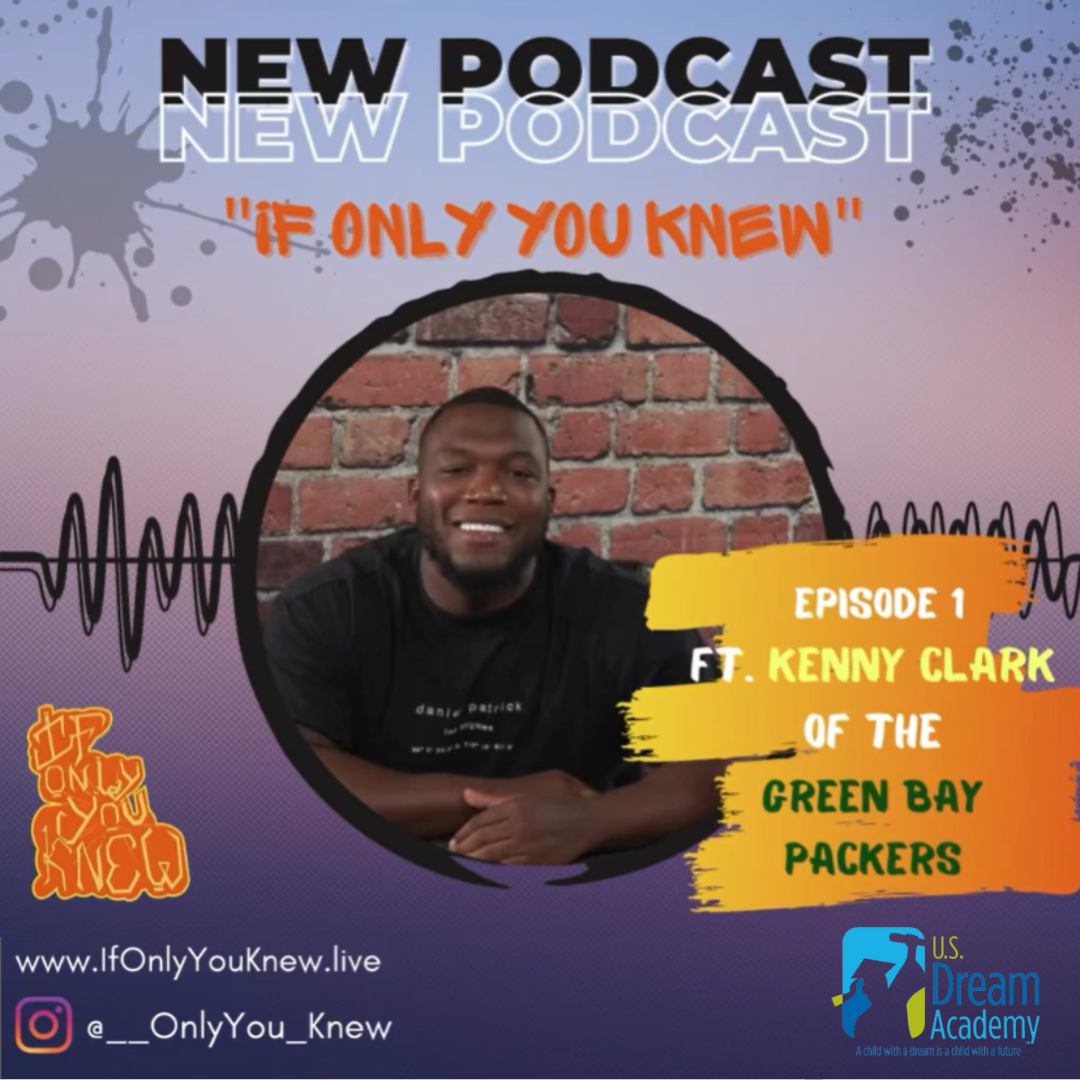
The inaugural podcast of If Only You Knew with guest Kenny Clark, NFL player with the Green Bay Packers.
We ask a lot of our children and young adults to fumble around and figure out adult problems on their own; and when they can’t we label them as “drop-outs,” “thugs,” "hopeless," "addicts" and some adults even end up fearing these same children who have so much to be afraid of themselves.
Yes, I want you to watch the podcast and celebrate these young people--their resilience, their ability to forgive, their desire to dream, and willingness to share. And, as you watch, also consider what systems we need to fix or even completely redesign to ensure children can grow up in safe and equitable communities with stable housing, quality education options, healthcare, healthy food access and opportunities for safe gatherings and celebrations as a community.
Young peoples’ resilience should be recognized and celebrated but we cannot stop there--we cannot continue to hold the unrealistic expectation that children must be the ones to figure it out because many of them do not and quite frankly should not have to--when we as adults can.
Meet our host and storytellers:
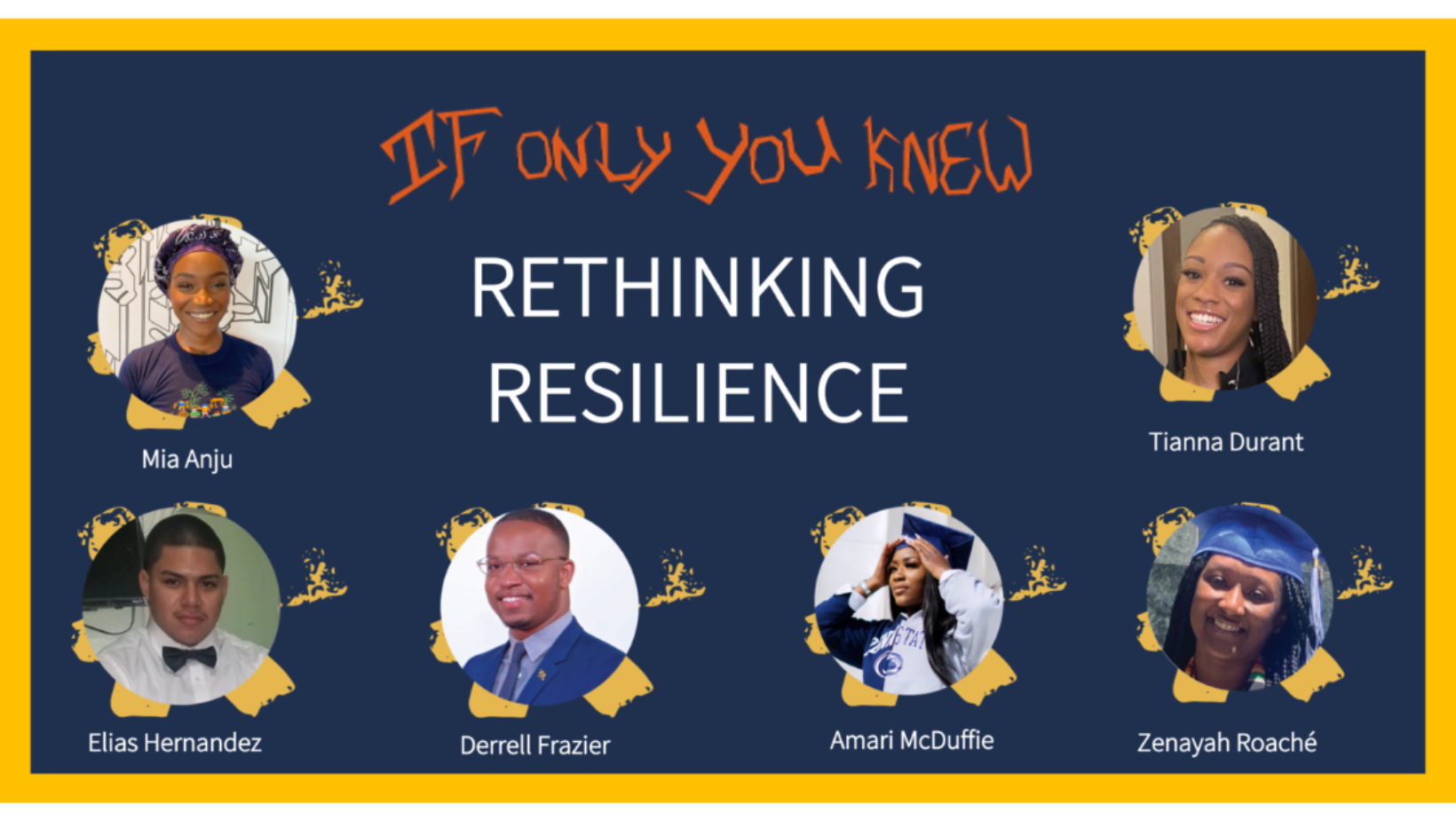
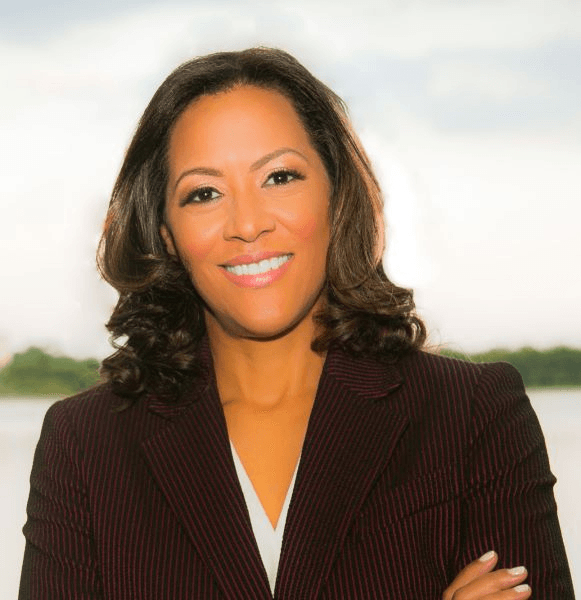

By Kaayla Butler
•
February 26, 2024
In 2023, we are proud to have our long-time corporate partner QTS as the sponsor for this prestigious award, The Mentor of the Year Award Sponsored by QTS. After a round of nominations from each of our Learning Centers, a rigorous review by a specially selected group of QTS employees, we are thrilled to announce our mentor of the year from Salt Lake City: Daniel Guerrero.
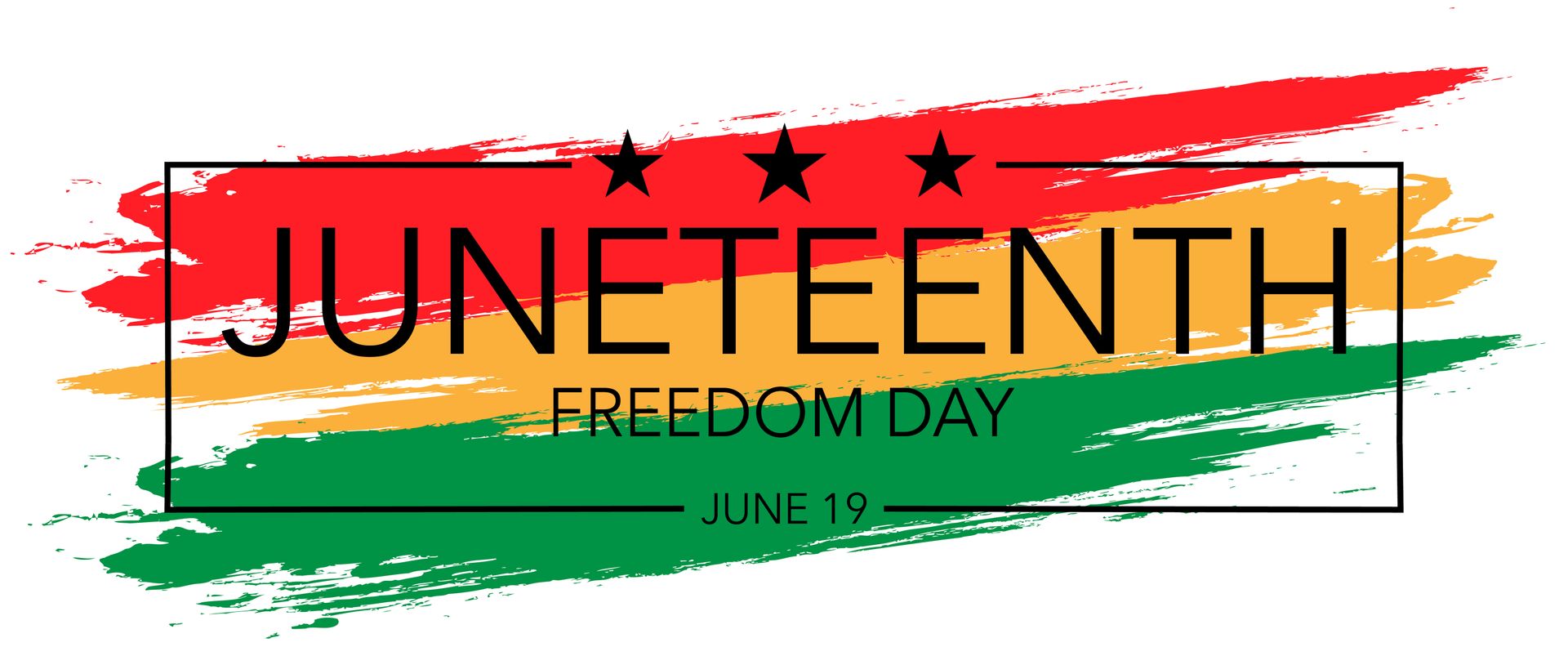
June 16, 2023
My great great grandmother, Maria Simms Wallace, born enslaved would have been around 20 years old on June 19, 1865 when General Granger and Union Troops rode into Galveston, Texas to officially declare the state of Texas under Union rule and consequently all enslaved Black people would be immediately free.
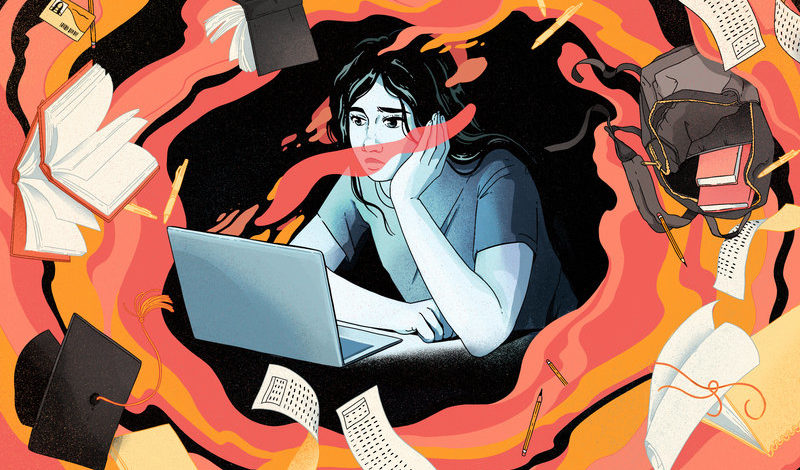
By C. Diane Wallace Booker, Esq., Chief Strategy Officer and Executive Vice President
•
April 22, 2020
When my son was selected to be a part of Michelle Obama’s “A Year of Firsts”- an internet series to document the first year of college, who could have guessed that our entire world would be going through “a year of firsts”!
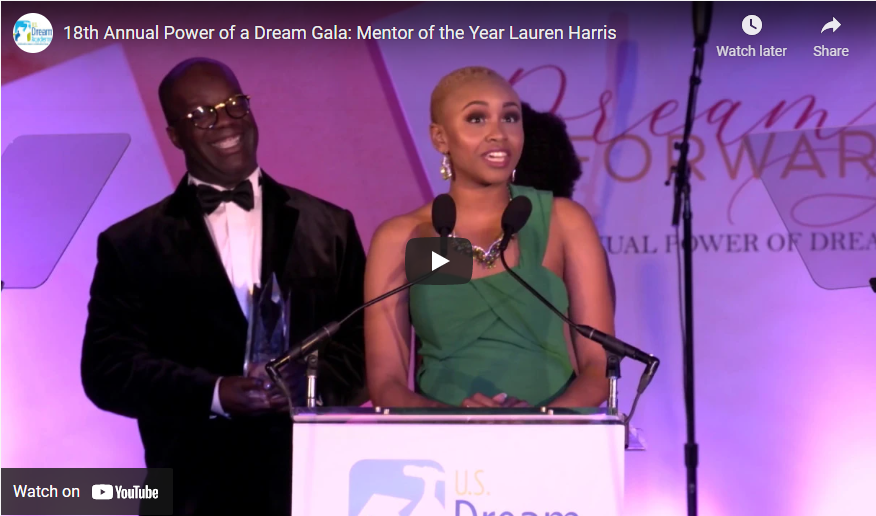
By U.S. Dream Academy
•
July 19, 2019
Described as “energetic, bright, positive and intentional” by Houston Dream Academy Learning Center Director Dipen Bhakta and Mentor Coordinator Walter Hull, Lauren Harris is currently a graduate student at the University of Texas School of Public Health and works at Change Happens, a nonprofit that teaches life skills to youth.
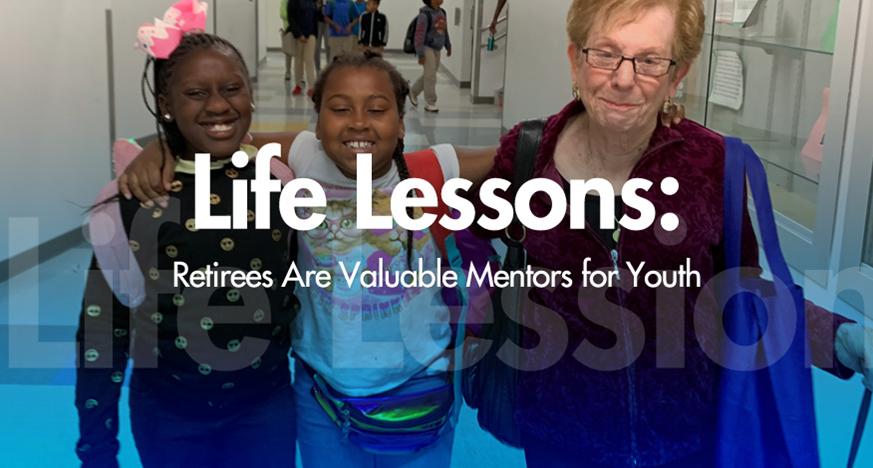
By U.S. Dream Academy
•
July 3, 2019
So, you thought retirement would be a piece of cake and you would love spending time relaxing and pursuing hobbies. Then you woke up to the reality that you’re bored and searching for a new purpose in life. Volunteering with a mentoring program might be the solution.
A Child With A Dream Is A Child With A Future
The U.S. Dream Academy is helping our nation’s children reach for their dreams. Through academic, social, and values enrichment, we empower children impacted by parental incarceration to believe in themselves and to succeed.
U.S. Dream Academy is a 501(c)3 registered nonprofit organization.
LEARN MORE
Join Our EMAIL LIST
Receive news, invites to special events, updates and more.
PHONE: 410-772-7143
EMAIL: info@usdreamacademy.org
NATIONAL OFFICE:
8807 Colesville Road,
5th Floor
Silver Spring, MD 20910
DREAM CENTER LOCATIONS:
Baltimore, Houston, Orlando, Philadelphia, Salt Lake City, San Bernardino, Washington, D.C.
#USDreamAcademy
All Rights Reserved | U.S. Dream Academy, Inc.
© 2025
